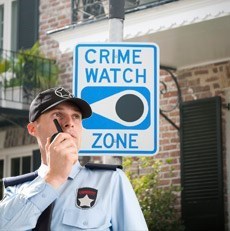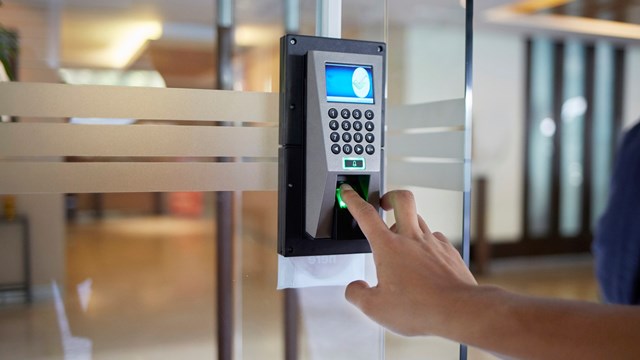
One gated community in Sanford, Florida was struggling with security issues. In a one-year time period, from January 1, 2011 through February 26, 2012, police were called to The Retreat at Twin Lakes more than 400 times. Reports show that crimes during this time period included eight burglaries, nine thefts, one shooting and dozens of reports of attempted break-ins.
In September 2011, the Twin Lakes residents wanted to do something about it, so they held an organizational meeting to create a neighborhood watch program. Resident George Zimmerman was selected by neighbors as the program's coordinator.
Last year, Zimmerman began his rounds, but on February 26, he called the Sanford police non-emergency number to report what he considered to be a suspicious person on the property. Zimmerman observed Trayvon Martin, a 17-year-old African American boy, returning to the Twin Lakes housing community after having walked to a nearby convenience store. At the time, Zimmerman was driving through the neighborhood on a personal errand.
While on the phone with police, Zimmerman followed and later fatally shot Martin, who was unarmed. The case—and subsequent acquittal of Zimmerman on murder charges—electrified the nation and sparked heated discussions of a number of hot-button issues, including the legitimacy and appropriateness of neighborhood watch programs involving untrained or minimally-trained civilians.
Safe at Home?
Residents want to feel safe and secure in their homes, but whose responsibility is it to ensure the security of the property? “I happen to be in favor of community and watching out for one another, but as a lawyer, I’m always a little concerned about neighborhood watches because of their level of training and experience,” says Lisa Anderson, an attorney with the law firm of Bender, Anderson & Barba, P.C. in Hamden, Connecticut, who says she hasn’t seen too many formal neighborhood watches in Connecticut. “The board needs a liaison to watch what the watch is doing. It needs to be formed by the board and they need to have the authority to remove it if it’s not going well.”
“Watch programs are made up of individuals who are committed to the objectives of the program and who want to do a good job,” says Anderson. “Police can also help with training and will meet with a watch group and have guidelines. The board does have a responsibility to maintain, the best they can, a safe premises. I think that a neighborhood watch does bring a sense of community and connectedness to people.”
She also says that community watches can be created for more than overseeing potential criminal intent. “Neighbors can use it to keep an eye on vulnerable people such as the elderly and disabled,” says Anderson. “There are very lonely, isolated people who are less likely to be complaining and unhappy if they feel that they have people watching out for them. Of course, it comes with certain cautions and you have to be really clear of the limitations. It’s a watch, not a solution-driven organization.
“Not there to solve problems,” says Anderson. “The idea is that they will notice problems and get the proper authorities in place. We never want residents to get involved in a resolution of a crime or situation.”
Case by Case
The Zimmerman case isn’t the only controversial neighborhood watch situation. In the Crown Heights neighborhood of Brooklyn, New York, Andrew Charles, a black college student, was reportedly beaten by members of the Shmira Jewish neighborhood patrol in April of last year.
“By analogy, a neighborhood watch is similar to when a resident, Mr. Smith, cuts his own lawn mid-week because he’s having a party and the property manager is taking too long,” says Lombardi. “Someone like Mr. Smith, who joins the neighborhood watch, may take it upon himself to protect people. If it doesn’t do it right, the association may be sued civilly, if not criminally.”
In the Trayvon Martin case, Zimmerman’s acquittal on murder charges drew strong protests. However, the Martin family reached a reported seven-figure settlement with the homeowners association in the gated community where Zimmerman lived.
In a U.S. Department of Justice report, “Crime Prevention Research Review, ‘Does Neighborhood Watch Reduce Crime,” the main method by which a neighborhood watch is supposed to help reduce crime is when residents look for and report suspicious incidents to the police and thereby perhaps deter potential offenders from committing a crime. One of the first evaluations of neighborhood watch programs in the United States was the Seattle Community Crime Prevention Project in 1973. The report of The 2000 National Crime Prevention Survey (National Crime Prevention Council, 2001) estimated that 41 percent of the American population lived in communities covered by neighborhood watch. The report concluded, “This makes neighborhood watch the largest single organized crime-prevention activity in the nation.”
The DOJ reports, though, have concluded that a neighborhood watch program was generally ineffective in reducing crime. The report states that the neighborhood watch programs only provide an “illusion” of safety.
If an association wants to create a neighborhood watch program, Anderson suggests working with someone who has a greater understanding, such as a retired cop,” says Anderson. “People live very different cultural backgrounds, and have different religious and sexual orientations. A neighborhood watch is not intended to be violation of people’s privacies or spying on neighbors.”
To help deter crime, some boards may still take security issues into their own hands and invest in technologies, such as camera systems, but Frank Lombardi, an attorney at the law offices of Goodman, Shapiro & Lombardi, LLC in Rhode Island, says that may not be a good idea either. “In an ungated community, any steps you take give the assumption that the residents are going to be protected,” he says. “You’re creating an expectation. I’m all for security, but once you start doing it you have to do it correctly. If the duty is breached, you may be found negligent.”
“Anytime you work toward solving a problem you own it,” says Anderson. “Although these liabilities are few and far between, security cameras are often used so people can have the film not because someone is watching the camera. Hopefully, the cameras are a disincentive to criminal behavior, but you should be working the insurance company.”
Lombardi and Anderson agree that if a board can afford professionals, then they should hire them. “Professionals are presumably trained and more experienced in recognizing problems and dealing with them,” says Anderson.
David Silvey, vice president/GM of the northeast region of AlliedBarton Security Services, says that providing security services in the multifamily industry is multi-faceted.
“In the urban high-rise condos, we are more of a concierge service, controlling access to the building, greeting owners and coordinating packages,” he says. “In a suburban condo complex, we patrol the property and control the parking rules and regulations and deter people who have a criminal intent from getting on the property. It’s our responsibility to make ourselves seen to deter any potential problems. Either way, our level of service is such that we make sure we are protecting someone’s home and we take that responsibility to heart and live it day in and out.”
Silvey says that his company can also work in conjunction with the association’s neighborhood watch programs. “We have some buildings that have safety or neighborhood committees—we augment or enforce what their rules are. They are on the property all the time, walking it and give our staff feedback. However, we’re out there in inclement weather and our service is consistently delivered.”
Another Level of Protection
Professional security companies are also insured, should something happen to them, or to someone else, while they are doing their job. “AlliedBarton carries the insurances for the actions of our personnel conducting their duties day in and day out,” says Silvey. “We would certainly have that liability insurance cover over an association.”
“Your professionals are only as good as the company you work with and the screening that they do,” says Anderson.
When local events happen, such as the Zimmerman case that turned into a national sensation, Anderson says it causes associations to rethink security procedures. “It’s a constant tension in community life,” he says. “These are neighbors who live together but they also live together in a legal context and there are legal ramifications for everyone. I’m open to more involvement if it’s carefully supervised because I think if you are too far on the side of restriction and are not letting them get involved, it’s a problem. If you are a large enough association, you can hopefully train the volunteers.”
In Philadelphia, Pennsylvania, Rep. Louise Bishop’s grandson was accosted by a stranger who identified himself as a member of the neighborhood watch. According to media reports, Bishop said her 16-year-old grandson was heading toward a home, when the stranger asked what the teen was doing and the ordered the boy to get into his vehicle.
As a result, Bishop created a bill that would require neighborhood watch groups to be certified by the Pennsylvania State Police. Local newspaper articles say that the legislation would also create new rules so as to provide a standard form of identification for neighborhood watch volunteers, making them recognizable as a state-recognized group, Bishop said.
In Illinois, legislation was approved that required auxiliary police officers to complete 400 hours of training. According to reports, many of those units folded because of this requirement.
What’s the solution? At this point, it might come down to several factors. First, if an association cannot afford to hire a professional security firm, they may invest in cameras, just to have some sort of technology watching the property. If however, the residents want to watch out for each other, it’s best to discuss a neighborhood watch program with your local police and insurance company. Nobody in Sanford, Florida, could see the Trayvon Martin situation coming at them, but it’s best to look at your security issues from all angles to see what works best for your association.
Lisa Iannucci is a freelance writer and a frequent contributor to New England Condominium.






Leave a Comment